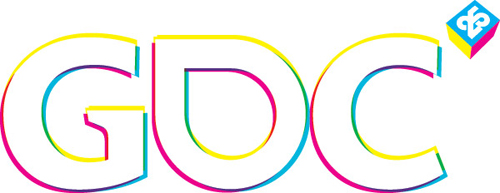GDC大会观点:社交网站及移动设备推动游戏行业发展
手机及社交游戏改变行业格局
Facebook等平台的社交游戏,智能手机、平板电脑及其他移动设备游戏数量的激增,推动了整个电子游戏行业的飞跃发展。
尽管任天堂Wii等传统游戏掌机的硬件销售额已从2008年的214亿美元,下降至2010年的187亿美元,而运行于这些硬件系统的游戏销售情况就更不妙了,但在多个平台上玩电子游戏的用户却比以往更多了。
与此同时,社交游戏开发商Zynga的估值已达到93亿美元左右,超过了《Madden NFL》和《模拟人生》的著名游戏发行商EA。
游戏开发商BioWare公司的联合创始人Ray Muzyka表示,“游戏运营模式正在发生变化,游戏内容以及用户体验时长都在变化——这在很大程度上可以反映出开发技术和娱乐元素融合的趋势。”
社交及手机游戏的崛起,打破了电子游戏的行业格局,甚至比1984年《马里奥》在Nintendo Entertainment System面世,抢夺视频游戏用户的情况更具冲击性。但在本周的GDC大会上,1万8000名游戏开发者、设计师、程序员和技术员们却普遍抱有乐观态度,因为手机、社交及可下载游戏的发展,将在未来几年进一步促进整个游戏市场规模的扩大。
GDC活动主管Meggan Scavio认为,智能手机游戏、社交游戏意味着开发商不需要一两年的开发周期,就能打造一个盈利的项目,但在他看来,掌机游戏也不会走向末路。
据NPD调查显示,三分之二的美国人都在玩电子游戏,将近一半的美国家庭拥有掌机电子游戏系统;与此同时,每5个六岁以上的美国人中,就有一者曾玩过Facebook等社交网站上的游戏。
另一家市场调研公司comScore的数据则显示,美国智能手机游戏用户超过了2100万。EA首席执行官John Riccitiello表示,“在十年前,全世界可能只有1.5亿或2.5亿人在玩游戏,但现在玩游戏的人达到了10亿或12亿,几乎每一种新型移动设备都变成了游戏机。”
游戏社交化及移动化趋势
据游戏邦了解,苹果在2007年发布了iPhone手机,Zynga也在同一时期向Facebook平台推出了《Texas Hod’em Poker》。现在,苹果iPhone的销量已经超过了7350万部,App Store的应用下载量突破了100亿次,其中多数为手机游戏。据AppData数据显示,继《FarmVille》之后的又一个Zynga游戏力作《CityVille》,日活跃用户已达2000万人,月活跃用户更是高达9500万人。
PopCap Games公司CEO戴夫·罗伯特(Dave Roberts)认为,如果没有Facebook游戏、智能手机游戏以及Android移动设备,整个游戏行业不可能在七八年时间内,增加了成百上千万的用户,“如果你在十年前问一个50多岁的老妇人是否玩过电子游戏,她肯定会困惑不知道你在说什么,但现在她有可能不止玩过《FarmVille》、《宝石迷阵闪电战》或《Peggle》之类的iPhone游戏。”
据ISG和PopCap最新的调查显示,三分之一以上的智能手机用户都玩手机游戏,半数以上的手机游戏玩家自称在过去一年玩游戏次数更多了,还有84%的受访者每周至少玩一次游戏。
Scavio认为,手机游戏并不会威胁传统游戏的生存,许多掌机及PC游戏发行商都在设计iPhone或iPad版本的游戏,“他们如果想扩大用户规模就必须这么做,来自Id Software工作室的《Rage》看上去就像是在iPhone上运行的掌机游戏,手机平台确实是人们体验游戏的新途径。”
掌机游戏需适应新市场环境
掌机游戏开发商必须适应新的市场形势,因为它们原来的运营方式已经开始跟不上步伐了。
Xbox 360到今年秋季就已经走过6年历程,PlayStation 3和Wii也有5年发展历史了,它们都已不能算是新的游戏运行系统。
不过这三者最近几年都添加了新功能,目前都支持下载游戏,在线播放Netflix视频,Xbox 360和PS3还可以连接到Facebook和Twitter。而新的体感控制器PlayStation Move和Xbox 360的Kinect,还提供了新的互动功能。
不过基于云系统的游戏可能会超越掌机游戏,比如已在运营中的OnLive,及其即将登台的竞争对手Gaikai。
在线游戏营收解决方案公司GamesAnalytics的北美运营主管Alan Miller预测,“大部分游戏都将通过在线或电子渠道发售,我非常关注掌机游戏开发商持续推出新一代游戏机的创新能力。”
据游戏邦了解,Miller是原美国动视的联合创始人,他认为视频游戏行业“正经历过去25年中最迅猛的变化,这是由零售销售渠道转向电子销售渠道所带来的变革。”
除此之外,掌机游戏发行商也需要适应这种时代变迁。
暴雪公司在2010年因《魔兽世界》和《使命召唤》地图包等数字内容的销售而创收15亿美元,但却在上个月叫停了《吉他英雄》、《Tony Hawk》、《True Crime》项目,以免因销售不济而出现亏损。除了该公司进行大量裁员之外,其他游戏开发商也采取了类似的行动。
Miller认为《吉他英雄》项目的倒闭是“用户转向在线销售渠道”,以及“运行《吉他英雄》所需的外围设备成本过高”这两种原因导致的结果。
Riccitiello表示,在离开EA首席运营官职位,以及重返该公司任首席执行官之间的三年中,在自己与他人联合创办的私募股权公司Elevation Partners的工作经历,让他确信视频游戏行业将“围绕这三种新设备以及宽带网络的高速发展”而进行自我变革。
现在,EA不但销售《Mass Effect》等可下载的游戏内容,而且还开发《Madden NFL》、《FIFA》和即将在春季发布的《Dragon Age》等Facebook游戏,EA Mobile还发行了多款著名的iPhone游戏。据Riccitiello所称,这种多元化的发展策略成绩斐然:数字内容的年度销售额超过了7亿美元,同比上一季度增长了39%。
他认为,数字游戏不会取代掌机游戏,大制作的影片仍将是电影行业不可或缺的一环,但同时人们也可以在YouTube上看相关影片的视频。他相信,这一行在十年后也仍然会有大制作的游戏,以及相应的小成本游戏。EA会涉足所有的游戏领域,目前这一行业最有趣的现象就是,所有的游戏都具有社交性。(本文为游戏邦/gamerboom.com编译,转载请注明来源:游戏邦)
Social Media and Mobile Devices Grow Game Industry
The popularity of games on Facebook and other social-networking sites coupled with the proliferation of games on smartphones, tablets and other mobile devices is powering a mini-explosion in the video game industry.
More people are playing video games on more platforms than ever, even as hardware sales of traditional game consoles such as the Nintendo Wii — not to mention the games for many of those systems — have declined from $21.4 billion in 2008 to $18.7 billion in 2010.
The estimated value of social-gaming publisher Zynga, the force behind many of the games on Facebook, has zoomed to as much as $9.3 billion, more than the value of established game companies such as Electronic Arts, publisher of Madden NFL and The Sims.
“The business model is changing,” says Ray Muzyka, co-founder of game developer BioWare, which releases its fantasy role-playing game Dragon Age II next week. Not only is the way people play games changing, so are the platforms on which they’re playing them, Muzyka says. “The types of content (and) the length of the experience is always changing — and a lot of that is a reflection of where games come from, the technology and entertainment fusion,” he says.
Disruptive forces are buffeting the video game industry more strongly than at any time since 1984, when Mario arrived on the Nintendo Entertainment System and began siphoning players from video game arcades. Still, optimism reigns as more than 18,000 game creators, designers, programmers and technicians gather this week at the Game Developers Conference in San Francisco. That’s because overall spending on games is expected to increase through 2014, with mobile, social and downloadable games driving the growth.
“What smartphones and social games is showing us is that you don’t need a year or two-year development cycle anymore to make a profitable game,” says GDC event director Meggan Scavio. “But those consoles are not going to go away.”
Video games are played by as many as two-thirds of Americans, says The NPD group, a market researcher. As many as half of U.S. homes have a console video game system. Meanwhile, one in five Americans age 6 and up have played games on social networks such as Facebook, according to NPD.
Then there are the 21 million-plus Americans who research firm ComScore says play video games on smartphones. “Maybe a decade ago, there were 150 million or 250 million people gaming, and now there are about 1 billion or 1.2 billion globally,” says John Riccitiello, CEO of Electronic Arts. “Every new device ends up being a game device.”
Getting Social and Mobile
In 2007, Apple brought its first iPhone to market, and Zynga launched Texas Hold’em Poker on Facebook. Since then, Apple has sold more than 73.5 million iPhones and 10 billion-plus apps, as many as half of them games. Zynga’s CityVille game, the successor to the popular FarmVille game, also on Facebook, attracts 20 million players daily and 95 million monthly, according to AppData.com.
Facebook games and games on smartphones, including Android devices, “have managed to do what the industry wasn’t able to do on its own for seven or eight years before that, to bring tens of millions of new people into the gaming fold,” says Dave Roberts, CEO of PopCap Games, which publishes Plants Vs. Zombies and Bejeweled. “If you asked a 50-year-old woman 10 years ago if she played video games, she would look at you like you are from Mars. Now, she is likely as not to play FarmVille or Bejeweled Blitz or Peggle on her iPhone.”
More than one-third of smartphone owners play games, according to a new survey conducted by Information Solutions Group for PopCap. Half of mobile gamers say they played more in the past 12 months, and 84% play at least once a week.
The mobile games do not seem to be cannibalizing traditional games, Scavio says. Many publishers of console and PC games are designing versions for iPhone and iPad. “They need to if they want to expand their audience. They need to go where those audiences are,” she says. “You saw Rage come out from Id Software. That looks like a console game on your iPhone. It really is just a new way for people to game.”
Console Systems Holding Pat
Console makers have had to adjust to market conditions. By past standards, all are getting long in the tooth.
The Xbox 360 will be 6 years old this fall, the PlayStation 3 and Wii, 5 years old. None are talking about new systems at this point.
All three have added functionality through the years. Each can be used to download games and stream Netflix videos over the Internet. The Xbox 360 and PS3 also connect to Facebook and Twitter. And new motion controllers, the PlayStation Move and Kinect for the Xbox 360, offer ways to improve those systems’ interactivity.
But cloud Relevant Products/Services-based systems that stream games to players could soon leapfrog console games. One such system, OnLive, already is in operation, and a competitor, Gaikai, is in the works.
“All the games or the vast majority of games are going to be distributed online or electronically,” predicts Alan Miller, director of North American operations for online game monetization firm GamesAnalytics. “I am concerned about the ability of the console manufacturers to keep introducing new, better-generation machines.”
Miller, a co-founder of the original Activision that published games for the Atari 2600, says the video game industry “is undergoing its greatest rate of change in the last 25 years, fundamentally generated by this transition from retail distribution to electronic distribution.”
Even publishers of the games made for consoles are having to adapt.
Activision took in $1.5 billion in revenue in 2010 from digital sales of World of Warcraft and Call of Duty map packs. Yet, last month it abandoned its Guitar Hero, Tony Hawk and True Crime franchises to stem potential losses because of lackluster sales of recent releases. It also announced layoffs, as have many other game makers.
Miller says Guitar Hero’s demise is a result of the “audience moving to online distribution” and the cost to “distribute the expensive peripherals that Guitar Hero requires.”
In the three years between leaving EA as COO and returning as CEO, Riccitiello says, his experience at private-equity firm Elevation Partners, which he co-founded, convinced him that the video game industry was going to have to transform itself “around these new devices and the proliferation of broadband.”
Today, EA sells downloadable content for games such as Mass Effect, as well as creating Facebook games for Madden NFL, FIFA and Dragon Age (due to launch this spring). And many of the top iPhone games are published by EA Mobile. The result: more than $700 million in annual digital sales, with a 39% increase last quarter, says Riccitiello.
“I don’t think it replaces console gaming,” he says. “Big blockbusters are still part of the movie industry. At the same time, you can watch a cat video on YouTube. I guarantee you, a decade from now, there will be blockbuster games, and there will be our equivalent of cat videos. We are going to run the full spectrum. The more interesting thing is that all games are social from this point.”(source:newsfactor)










































 闽公网安备35020302001549号
闽公网安备35020302001549号